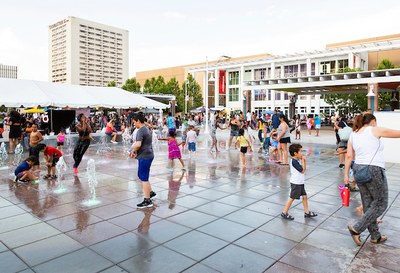What You Can Do to Be Prepared
As you know, you are responsible to protect yourself and your family. To prepare for an emergency, every citizen and family in Albuquerque should establish a personal and family disaster plan.
Preparedness Documents
We have gathered a list of links to resources you might find helpful in developing your preparedness plan.
FEMA Mobile App
The FEMA App allows you to receive real-time weather alerts, send notifications to loved ones, locate emergency shelters in your area, and more.

Six Steps To Consider
Here are the six steps that you and your family should take right now to prepare:
- Decide where your family will regroup and how your family will make contact after a disaster. (Assume cell phones will not work.)
- Make sure you know how to turn off the water and other utilities at your home and at work.
- For each person in your home, stock up on at least three gallons of water, at least a three-day's supply of non-perishable food, and a manual (non-electric) can opener.
- Also have on hand (1) a flashlight, (2) a portable radio, (3) extra batteries, and (4) a first aid kit.
- Keep your gas tank as full as possible at all times.
- Read and take action on Federal Emergency Management Agency's (FEMA) online publication Make a Plan.
Disastrous events in the U.S. and around the world provide all the proof we need; it is prudent for you and your family to make provisions beyond FEMA's recommended Basic Disaster Supply Kit.
What You Should Do in an Emergency
- Act on your personal and family disaster plan.
- Listen for and act on all instructions from your elected City officials and other local authorities.
- Access information via all functioning media, including radio- and TV-station news and the City's website (www.cabq.gov).
- Call 311 if you have questions.
- If so instructed, go to the shelter nearest you.
- If so instructed, evacuate.
- If you are instructed to evacuate and do not have transportation, call 311.
Specific Emergencies
After a Bomb or Other Explosion: Exit the building and the area quickly. Do not use elevators. Cover your nose and mouth and do not inhale dust and particles. If you are trapped in debris, do not move except to tap on the wall or nearby surface so rescuers can hear where you are.
In a Biological Emergency: Follow the instructions of doctors and public health officials. Practice good hygiene and cleanliness to avoid spreading germs. If needed, seek medical advice or attention.
In a Chemical Emergency: Get out of the building and get away from the area. If needed, seek medical advice or attention.
In a Radiological Emergency: Contaminated radioactive material can injure your body both externally and internally. Move as far as possible away from the suspected area. Cover your nose and mouth. Stay indoors, close all windows and doors, and turn off your air conditioner. Bring your pets inside. Notify your neighbors of the alert via phone. Listen and watch local news.

